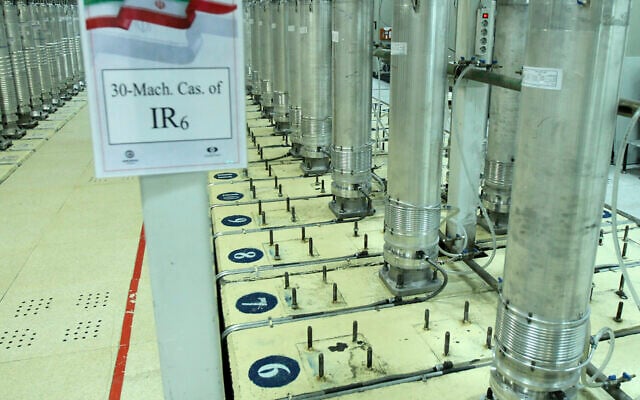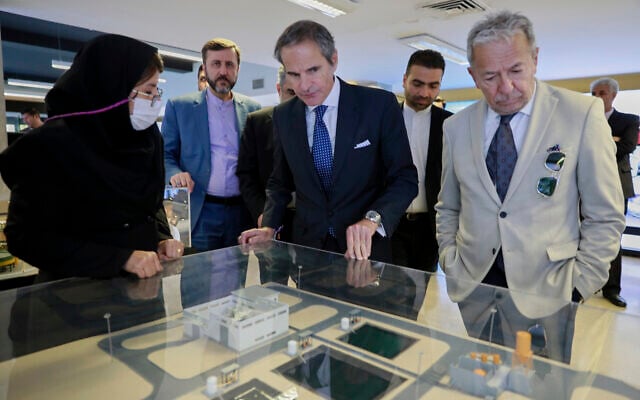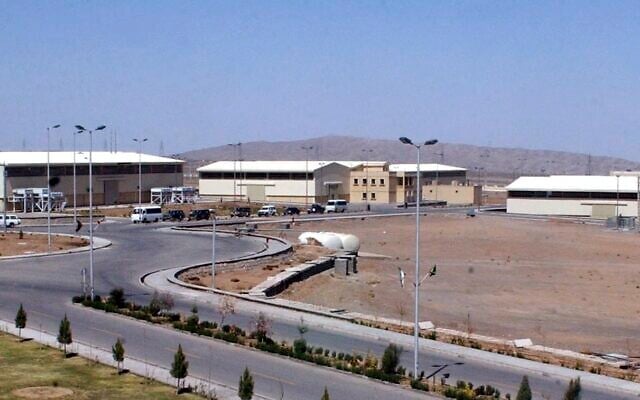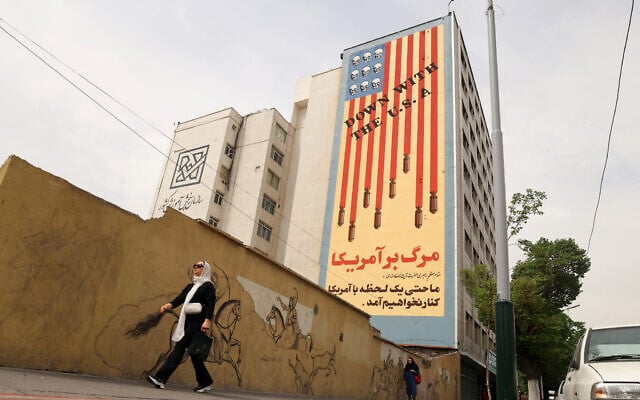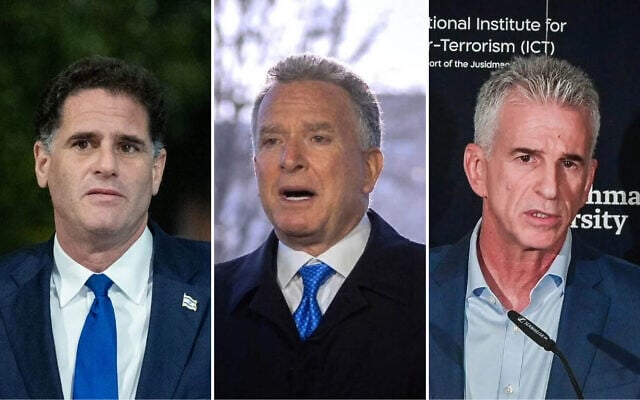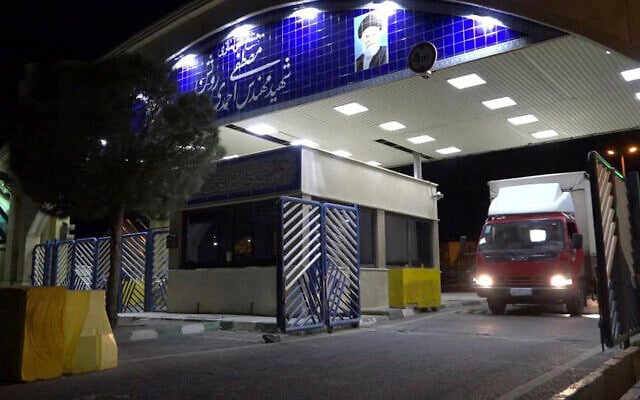


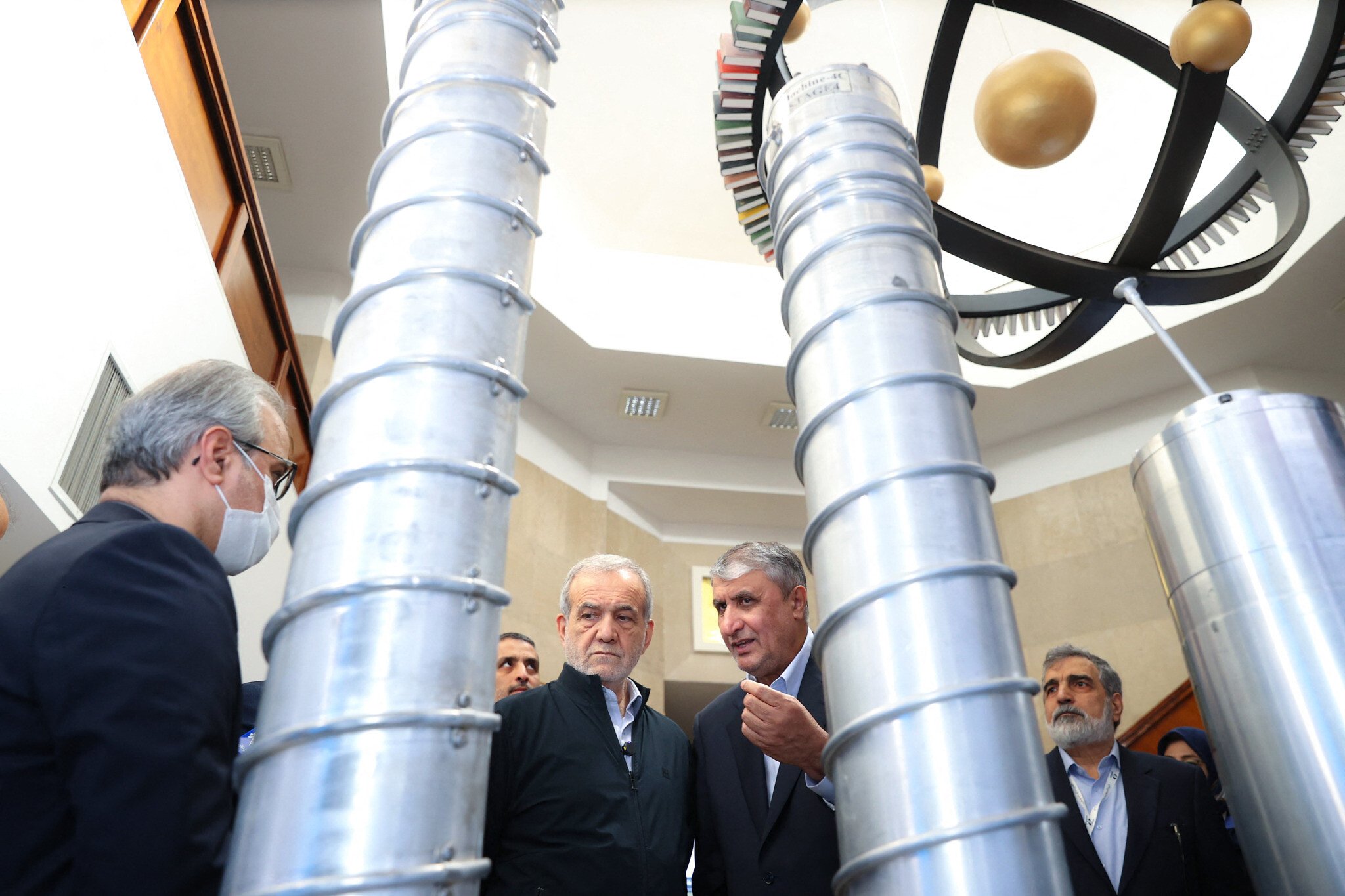
The International Atomic Energy Agency passed a resolution Thursday declaring that Iran is in noncompliance with its nuclear safeguards obligations, further ratcheting up pressure on the Islamic Republic over its controversial program amid strained negotiations with the US and concerns Israel may strike its facilities.
Iran reacted immediately, saying it will establish a new enrichment facility and scale up uranium enrichment after the vote against it. The announcement said the facility will be “in a secure location” and that “other measures are also being planned.”
The UN nuclear watchdog passed the resolution at its Board of Governors meeting in Vienna, the first such censure against Iran in two decades.
“Iran’s many failures to uphold its obligations since 2019 to provide the Agency with full and timely cooperation regarding undeclared nuclear material and activities at multiple undeclared locations in Iran… constitutes non-compliance with its obligations under its Safeguards Agreement,” the resolution said.
The US, France, UK, and Germany put forward the resolution.
Nineteen countries on the International Atomic Energy Agency’s board, which represents the agency’s member nations, voted for the resolution, according to diplomats who spoke on condition of anonymity to describe the outcome of the closed-doors vote.
Three countries opposed — Russia, China, and Burkina Faso — and there were 11 abstentions and two that did not vote.
The measure is sure to give additional momentum to efforts by European countries to reinstate United Nations Security Council sanctions on Iran this year.
The resolution renewed a call on Iran to provide answers “without delay” in the investigation into uranium traces found at several locations that Tehran has failed to declare as nuclear sites, according to a draft resolution seen by the Associated Press.
Western officials suspect that the uranium traces could provide evidence that Iran had a secret nuclear weapons program until 2003.
Under the so-called safeguards obligations, which are part of the Nuclear Non-Proliferation Treaty, Iran is legally bound to declare all nuclear material and activities and allow IAEA inspectors to verify that none of it is being diverted from peaceful uses.
The draft resolution found that the IAEA’s “inability… to provide assurance that Iran’s nuclear program is exclusively peaceful gives rise to questions that are within the competence of the United Nations Security Council, as the organ bearing the main responsibility for the maintenance of international peace and security.”
Speaking to Iranian state television after the vote, the spokesman for the Atomic Energy Organization of Iran said that his agency immediately informed the IAEA of “specific and effective” actions Tehran would take.
“One is the launch of a third secure site” for enrichment, spokesman Behrouz Kamalvandi said. He did not elaborate on the location. Iran has two underground sites, at Fordo and Natanz, and has been building tunnels in the mountains near Natanz since suspected Israeli sabotage attacks targeted that facility.
The other step would be the advanced centrifuges at Fordo. “The implication of this is that our production of enriched materials will significantly increase,” Kamalvandi said.
Iran’s leaders, who are sworn to destroy Israel, have publicly denied seeking nuclear weapons, but have stocked up on 60%-enriched uranium — far above what is necessary for civilian uses, and a short step away from weapons-grade.
The IAEA vote came at a sensitive time as tensions in the region have been rising, with the US State Department announcing on Wednesday that it is drawing down the presence of people who are not deemed essential to operations in the Middle East.
A number of reports pointed to increasing readiness by Israel to take military action against Iranian nuclear facilities.
US President Donald Trump has previously said that Israel or the US could carry out airstrikes targeting Iranian nuclear facilities if negotiations failed.
It also comes as the US and Iran have been holding talks on Tehran’s rapidly advancing nuclear program. Oman’s foreign minister said earlier Thursday that a sixth round of negotiations will be held in his country on Sunday.
The draft resolution makes a direct reference to the US-Iran talks, stressing its “support for a diplomatic solution to the problems posed by the Iranian nuclear program, including the talks between the United States and Iran, leading to an agreement that addresses all international concerns related to Iran’s nuclear activities, encouraging all parties to constructively engage in diplomacy.”
Israel’s Strategic Affairs Minister Ron Dermer and Mossad chief David Barnea will take off Friday for talks with US special envoy Steve Witkoff ahead of the next round of talks between Tehran and Washington on Iran’s nuclear program, an Israeli official told The Times of Israel.
The Israel-US meeting is designed to “clarify Israel’s position,” said the official.
The Prime Minister’s Office declined to answer where the meeting will take place.
Prime Minister Benjamin Netanyahu decided to send the two senior officials after he and Trump spoke at length on Monday about Iran’s nuclear program.
A senior Western diplomat last week described the IAEA resolution as a “serious step,” but added that Western nations are “not closing the door to diplomacy on this issue.”
“The objective of the resolution is for Iran to resolve the issue,” the source said, which is why the resolution will not immediately refer Iran’s noncompliance to the UN Security Council to consider triggering more sanctions. “They will have a window to finally comply and respond to all the requests that have been made over the last six years.”
However, if Iran fails to cooperate, an extraordinary IAEA board meeting will likely be held in the summer, during which another resolution could get passed that will refer the issue to the Security Council, the senior diplomat said.
The three European nations have repeatedly threatened in the past to reinstate sanctions that have been lifted under the original 2015 Iran nuclear deal if Iran does not provide “technically credible” answers to the UN nuclear watchdog’s questions.
The authority to reestablish those sanctions by the complaint of any member of the original 2015 nuclear deal expires in October, putting the West on a clock to exert pressure on Tehran over its program before losing that power.
The resolution comes on the heels of the IAEA’s so-called “comprehensive report” that was circulated among member states at the end of last month. In the report, the UN nuclear watchdog said that Iran’s cooperation with the agency has “been less than satisfactory” when it comes to uranium traces discovered by agency inspectors at several locations in Iran.

